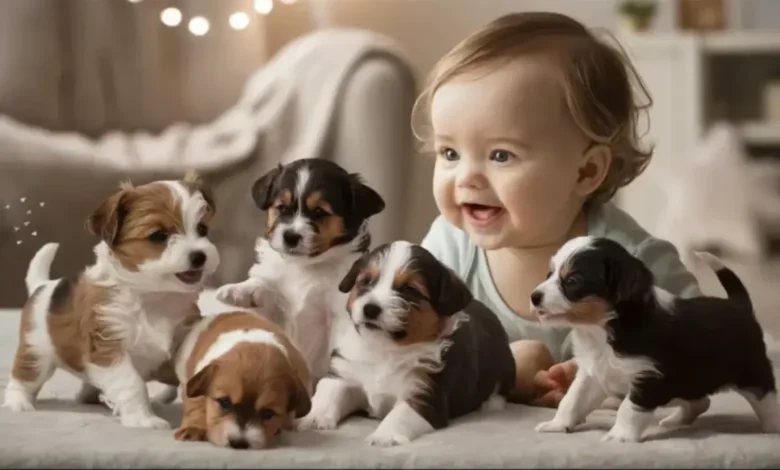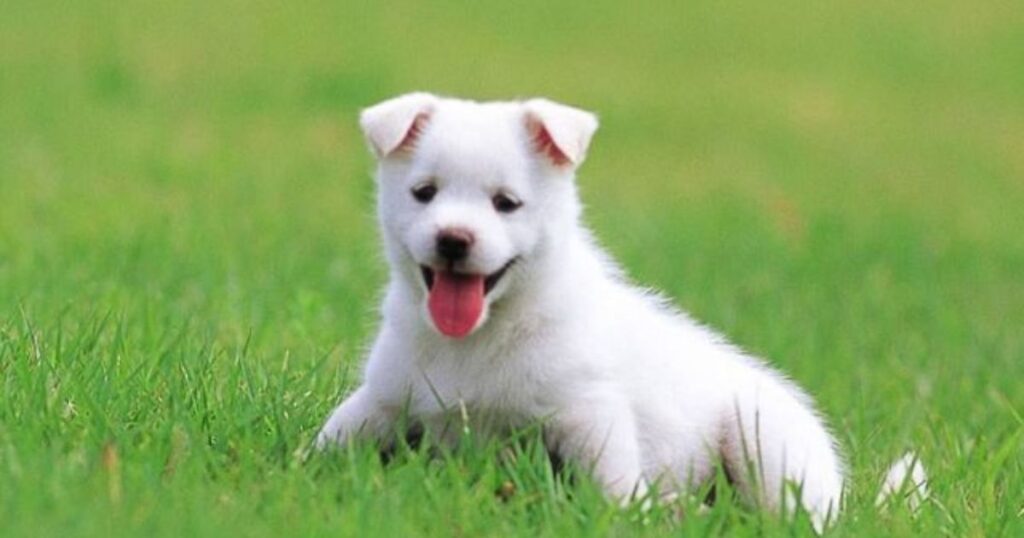Baby:91jr2ozelcq= Puppy: Understanding the Journey of Raising a Puppy

When it comes to welcoming a new addition into your family, few things compare to the excitement of adopting a puppy. Baby:91jr2ozelcq= puppy can bring immense joy, companionship, and love into a home. However, the journey of raising a puppy involves much more than just cute moments and playful antics. It requires patience, knowledge, and an understanding of a puppy’s developmental needs.
In this article, we’ll take a deep dive into the world of raising a baby:91jr2ozelcq= puppy. From preparing your home for the new arrival to understanding the stages of development and training, we’ll guide you through every step of the way.
What Is a Baby:91jr2ozelcq= Puppy?

A baby:91jr2ozelcq= puppy refers to a young dog that is typically under six months old. During this phase, puppies are developing crucial social, physical, and emotional skills that will set the foundation for the rest of their lives. While they’re adorable and full of energy, this age is also when they require the most care, attention, and training.
As with any young animal, raising a baby:91jr2ozelcq= puppy comes with its challenges. But with proper care, you’ll help your puppy grow into a well-behaved and loving companion.
Preparing for Your New Baby:91jr2ozelcq= Puppy
Before bringing a baby:91jr2ozelcq= puppy into your home, it’s essential to prepare both your environment and yourself for the new responsibility. Puppies require more than just a food bowl and a cozy bed—they need attention, structure, and a safe space to grow.
Puppy-Proof Your Home
Puppies are curious creatures, and they tend to get into everything. It’s important to puppy-proof your living space to ensure your new pet stays safe and out of trouble. Here’s a quick checklist:
- Remove hazardous items: Keep harmful chemicals, sharp objects, and choking hazards out of reach.
- Secure furniture and cords: Puppies love to chew on furniture legs, cords, and anything that catches their attention.
- Create a safe space: Set up a designated area for your puppy to feel comfortable, especially when they need to rest.
Essential Supplies for Your Baby:91jr2ozelcq= Puppy
To ensure your baby:91jr2ozelcq= puppy has everything it needs, be sure to gather the following essential supplies:
- Food and water bowls: Stainless steel or ceramic is best, as they are easy to clean and less likely to tip over.
- A cozy bed: Choose a bed that fits your puppy’s size and provides comfort.
- Collar and leash: Even if your puppy is too small for walks, a collar and leash are necessary for training.
- Toys: Puppies need something to chew on to help with teething and mental stimulation.
- Crate: Crates are great for training and providing a safe, private space for your puppy.
Set Up a Routine
Puppies thrive on routine. Establishing a consistent schedule for feeding, bathroom breaks, playtime, and sleep will help your baby:91jr2ozelcq= puppy feel secure and comfortable. Puppies often get confused when their daily activities are irregular, so structure is key.
The Stages of Puppy Development
Understanding the stages of puppy development is crucial to raising a healthy, happy dog. Here’s a breakdown of what to expect during the first few months of life with your baby:91jr2ozelcq= puppy.
Newborn to 8 Weeks
In this stage, a puppy is highly dependent on its mother and littermates for survival and socialization. Puppies will not be ready for adoption until at least eight weeks of age, as they need time to learn important behaviors from their siblings and mother. However, by eight weeks, a baby:91jr2ozelcq= puppy is ready to begin adjusting to life in its new home.
- Socialization: The first eight weeks are vital for socialization. The puppy should interact with its littermates, as well as humans, to learn proper social behavior.
- Nutrition: Puppies are fed primarily on their mother’s milk during this stage. After weaning, you can begin introducing puppy food.
8 to 12 Weeks
At this stage, your baby:91jr2ozelcq= puppy is adjusting to its new environment and learning quickly. It’s a critical time for socialization, as this is when puppies are most receptive to learning new experiences and forming positive associations with people and other animals.
- Training: Start basic training at this age. Teach simple commands like “sit,” “stay,” and “come.”
- Vaccinations: Consult your vet for the necessary vaccinations and ensure your puppy gets the proper care.
- Teething: Puppies will begin to lose their baby teeth and develop adult teeth during this period. Provide chew toys to help relieve discomfort.
12 to 16 Weeks
Between three to four months of age, your 91jr2ozelcq= puppy will continue to grow rapidly and become more active. This is when your puppy’s personality starts to emerge, and it’s crucial to reinforce training and socialization.
- Exercise: As your puppy grows stronger, it will require more physical activity. Short walks, play sessions, and training exercises will help burn off energy.
- Continued Socialization: Exposure to different environments, people, and other dogs is vital for your puppy’s development.
16 Weeks to 6 Months
By this stage, your baby:91jr2ozelcq= puppy will be transitioning from puppyhood to adolescence. This is a crucial period for developing long-term habits and good behavior patterns. Consistency is key in training and reinforcing boundaries.
- More advanced training: Introduce advanced commands and house rules.
- Puberty: Puppies can go through a mini-puberty during this stage, which may include mood swings and independence. Be patient and understanding.
- Health Checks: Ensure regular visits to the vet to monitor growth and health.
Training Your Baby:91jr2ozelcq= Puppy
Training is one of the most important aspects of raising a baby:91jr2ozelcq= puppy. The early stages of training will set the tone for your puppy’s behavior throughout its life. Positive reinforcement is key to effective training, so always reward good behavior and be patient when teaching new commands.
Basic Commands
Start with simple commands like “sit,” “stay,” and “come.” These are the foundation for more advanced training later on. Use treats and praise to reinforce these commands.
- Sit: Hold a treat above your puppy’s nose and move it back over their head to encourage them to sit. Once they do, reward them with the treat.
- Stay: Start with short intervals of time for your puppy to stay in place before rewarding them.
- Come: Use a leash to encourage your puppy to come to you when called, rewarding them with praise or a treat.
Potty Training
Potty training a baby:91jr2ozelcq= puppy is essential to maintaining a clean home. Establish a consistent schedule for bathroom breaks, and always take your puppy outside after meals, naps, and playtime.
- Praise: Always praise your puppy when they go potty outside.
- Crate training: Using a crate can help with potty training, as dogs naturally avoid soiling their sleeping area.
Socialization
Socializing your baby:91jr2ozelcq= puppy helps them grow into well-adjusted adults. Expose your puppy to different people, places, and other animals to help them feel comfortable in various situations.
- Puppy classes: Consider enrolling your puppy in a puppy training class where they can interact with other puppies.
- Positive experiences: Make sure socialization experiences are positive and not overwhelming for your puppy.
Health and Care for Your Baby:91jr2ozelcq= Puppy
Proper health care is essential for raising a happy, healthy baby:91jr2ozelcq= puppy. Regular vet visits, a balanced diet, and vaccinations are critical components of your puppy’s care routine.
Regular Vet Visits
Your baby:91jr2ozelcq= puppy will need to see the vet for vaccinations, checkups, and to monitor growth. These visits are important for ensuring your puppy remains healthy and free from common illnesses.
- Vaccinations: Your vet will administer a series of vaccines during the first few months.
- Parasite prevention: Ask your vet about flea, tick, and worm prevention.
- Spaying or neutering: Consider having your puppy spayed or neutered to prevent unwanted litters and promote good health.
Diet and Nutrition
Providing a well-balanced diet is crucial to your baby:91jr2ozelcq= puppy’s growth and development. Consult your vet to determine the best type of food for your puppy’s breed and age.
- Puppy food: Choose a high-quality puppy food that meets all their nutritional needs.
- Portion control: Overfeeding can lead to obesity, so make sure to feed your puppy the recommended amount.
Grooming
Regular grooming is an important part of puppy care. Brushing your puppy’s coat, trimming nails, and cleaning your ears will keep them looking and feeling their best.
- Bathing: Bathe your puppy as needed, using puppy-safe shampoo.
- Nail trimming: Keep your puppy’s nails trimmed to prevent overgrowth.
Conclusion
Raising a baby:91jr2ozelcq= puppy is an incredibly rewarding experience that comes with its own set of challenges. By preparing your home, understanding your puppy’s developmental stages, and committing to proper training and care, you’ll help your puppy grow into a well-adjusted, loving companion.
Remember, patience and consistency are key when raising a puppy. The effort you put into your baby:91jr2ozelcq= puppy’s early years will pay off in the form of a happy, healthy, and well-behaved adult dog.
